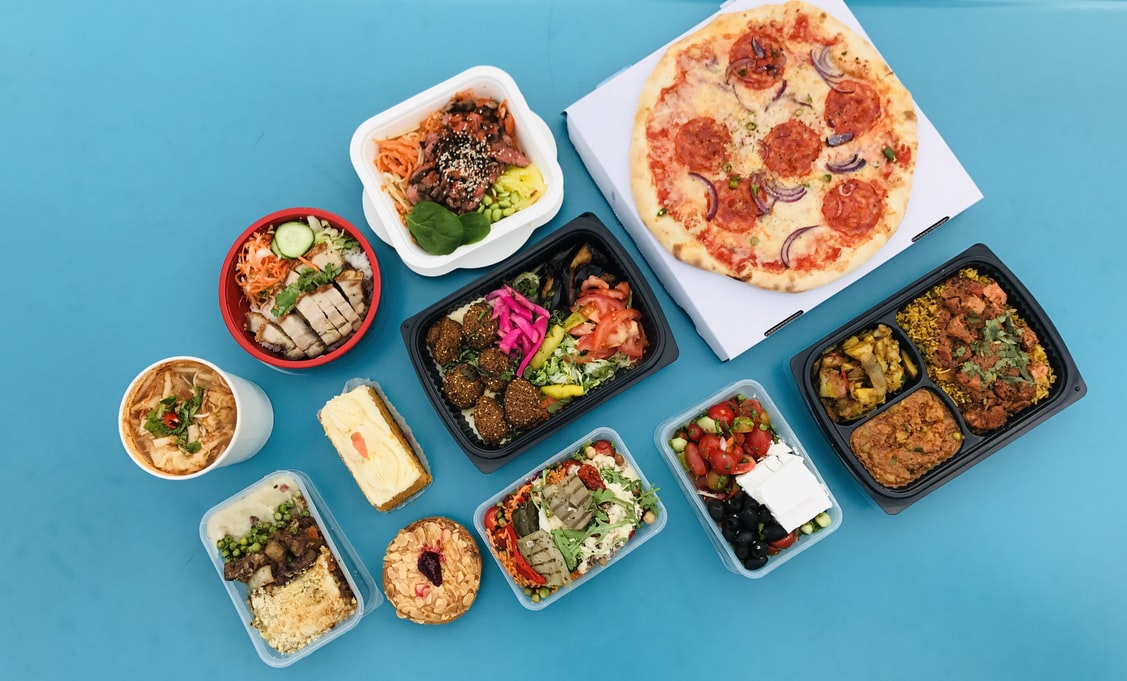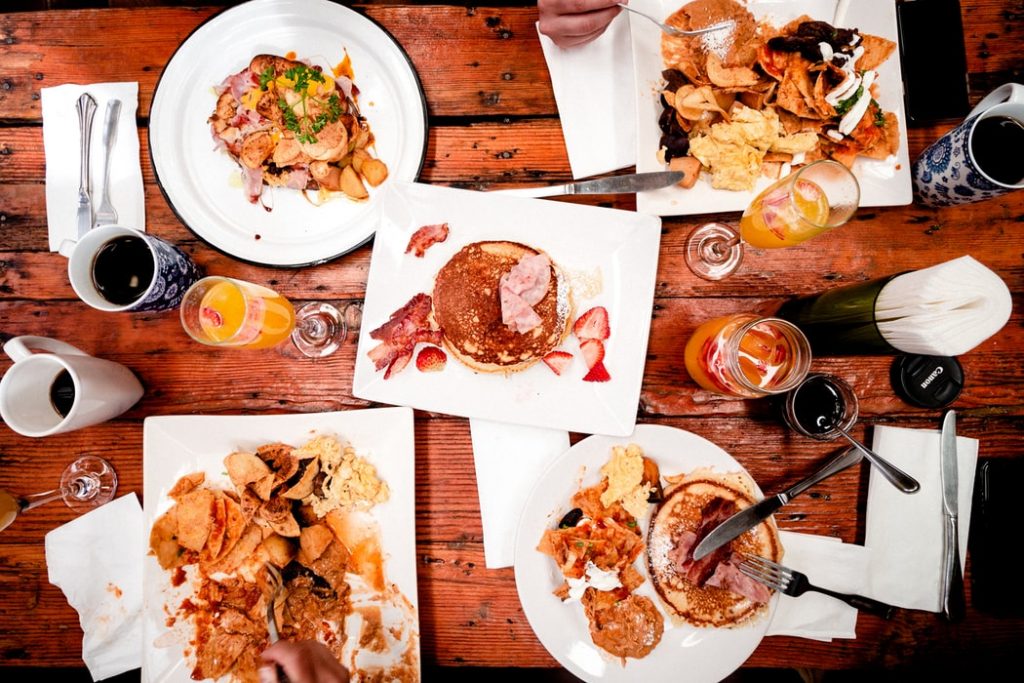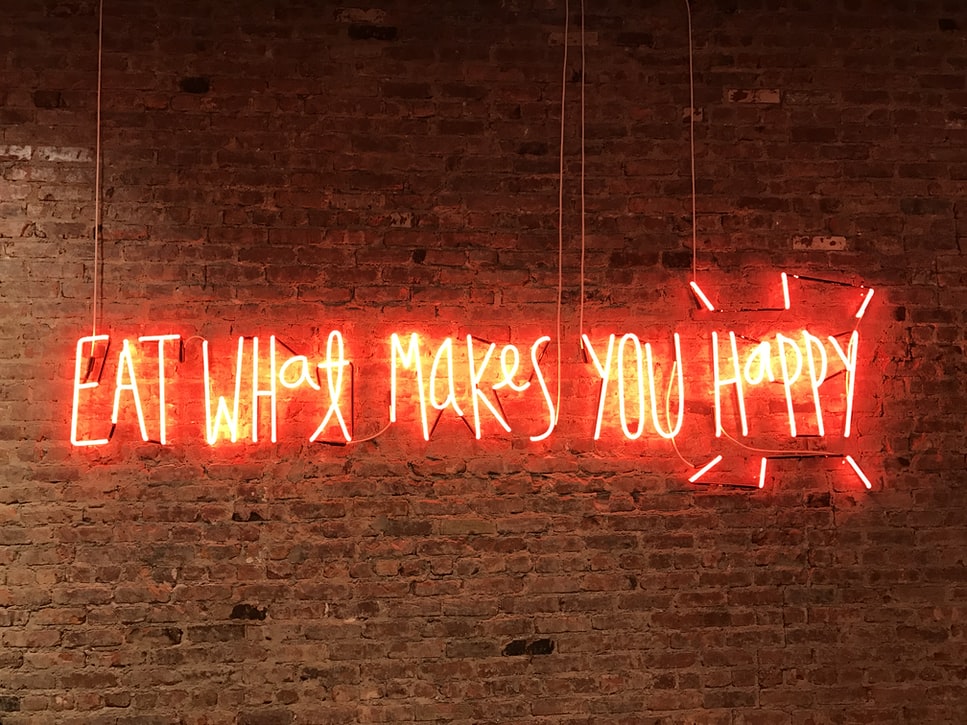Lifestyle May 21, 2020
What is intuitive eating?


**I want to preface that I am not a licensed health professional. This is based on my own experience.
Self-care is THE buzzword of our generation. And it’s adorable and lovely and aesthetically pleasing to do a face mask or eat a tub of ice cream and yell, “eh, whatever it’s self-care.”
But this sometimes diminishes how hard self-care actually is. Self-care doesn’t start and stop; it is an ongoing process of reawakening and regrounding yourself.
What a loaded statement. That was my reaction when one of my teachers first told me about intuitive eating. Like many other pubescent girls, I was going through…quite a moment with my body. I set setting rules for what I allowed myself to eat every day. I was scared of my own local food back in Hong Kong because there was no information on the calorie count. There was a fear inside of me of eating “bad food.” I found myself overplanning everything I ate, then not following the damn plan. I was unhappy with the way I saw myself and disappointed in my body… how could I not have control over something that was physically MINE?
So I looked into this whole intuitive eating thing…thinking that it would help craft my next eating rulebook. Upon researching, I found myself completely lost. How could you just eat what you feel like eating? I soon caught myself falling into this internet spiral. Looking back, I can’t believe that I thought this concept was so bizarre. I had been distancing myself from my body’s natural instincts. My conception of eating had been so skewed and distorted, eating no longer came naturally but was a mentally-taxing, over-calculated, activity that hindered me from thinking about anything else!
With this realization, I knew that I had to rekindle my relationship to food. No more rules or guilt. No more “health.” It had to be all about me. These few mantras, as many times as I repeated them, don’t relieve me of the trauma I have put my body through. Rather it sparked this new respect I had for my body and mind. It became the foundation for all my forms of self-care.

Intuitive eating approaches food in a way that puts the body and self first. It is the process of unlearning all preconceived notions of “health” and diets and redefining your understanding of satisfaction. According to The Original Intuitive Eating Pros, these are the 10 principles of intuitive eating:
This list contains the universally-accepted fundamentals of intuitive eating. However, I found it difficult to derive a concrete starting point. So here are three starting points that I used that lead me to a lot of the points shown above.


Seems too damn simple, but it really is just that.
We often distract ourselves with Netflix or something dumb on our phones during meals. We end up not fully appreciating and TASTING the food we have in front of us. I’m not saying don’t watch a movie while eating, but make sure to maintain your focus on the food.
By tasting each bite, I not only appreciate the food in front of me more, but I also thank the lord for functioning taste buds! It makes me eat a lot slower and I am so much more satisfied once I am done my meal. By doing this every meal (it will eventually come habitually) I was able to reconnect with the feelings of hunger and fullness, associating neither positive or negative connotations with these concepts.
Like “hunger” and “fullness,” try to catch yourself when you associate food with “good” and “bad” labels especially when you go to the grocery store, or eating a nice brunch with your friends. Don’t pollute a good plate of deliciousness with calorie counting or internal body shaming…enjoy that plate of goodness!
I believe that each food item I enjoy has its health benefit, whether it cleanses my body, or simply make me happy. This doesn’t mean binge eating, but eating in a way that leaves me mentally more satisfied.
This step connects to the previous point. Instead of adhering to other people’s list of “healthy foods,” part of the journey is getting an honest answer to what makes you feel good. We are not neglecting nutrition as a factor, but rather we relearn the concept of nutrition. Our bodies have their own voices, and you have to listen to her. Instead of using my body to track my health, I found writing down what foods makes me feel good or made me happy gave me a more concrete point of reference. It allowed me to disassociate weight and nutrition, and just enjoy food for what it is.


“Food Psych” Podcast by Chrissy Harrison– Educational and fun podcast if you want to dip your toes into the world of intuitive eating. There are also fun interviews with really cool body-positive activists and anti-diet professionals!
“You Can Eat With Us” Podcast by Cara Harbstreet – Another great podcast that is dedicated to understanding different people’s journey with intuitive eating and body acceptance.
“The Body Is Not an Apology: The Power of Radical Self-Love” by Sonya Renee Taylor – This book changed my life. It literally gave me the confidence to do anything and everything. Beyond my own journey of reclamation with food, this helped me unpack discomfort within myself.
Here are other books that may help you with your self-love and self-compassion journey!
It’s not YOU… society has messed with our relationship with food and ourselves. This is hard work, but necessary work for you and the people around you to live a truly mentally, physically, and emotionally healthy life.